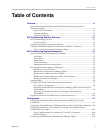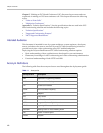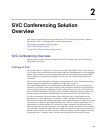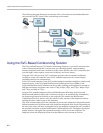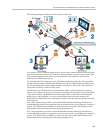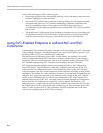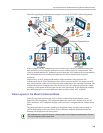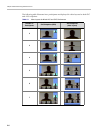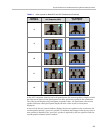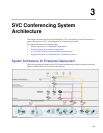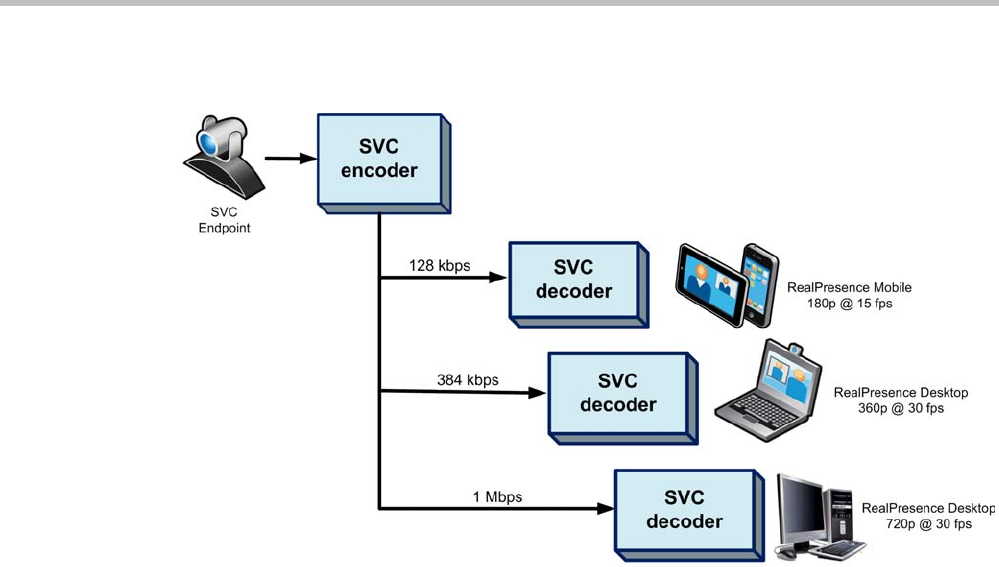
Chapter 2-SVC Conferencing Solution Overview
2-2
The following diagram illustrates an example of the various devices and bandwidths that
can be used in an SVC-based video conferencing environment:
Using the SVC-Based Conferencing Solution
The Polycom RealPresence SVC-Based Conferencing Solution is a powerful and innovative
video conferencing mode that, in some cases, provides high-quality video streaming
between endpoints with lower resolutions, frame rates, and line rates. SVC conferences also
provide higher video capacity, better error resiliency and lower latency.
Using the SVC video protocol, SVC conferences provide video bit streams at different
resolutions, frame rates and line rates to SVC-enabled endpoints with various display
capabilities and layout configurations.
In the SVC-based conference, each SVC-enabled endpoint transmits multiple resolution and
temporal layers, to the Polycom® RealPresence® Collaboration Server (RMX) or the
Polycom® RealPresence® Collaboration Server 800s, enabling each endpoint to transmit at
different resolutions and frame rates such as 720p at 30fps, 15fps, and 7.5fps, 360p at 15fps
and 7.5fps, and 180p at 7.5fps.
Polycom SVC-enabled endpoints (Polycom® RealPresence® Desktop and Polycom®
RealPresence® Mobile) enable video conference layouts to be automatically assembled by
the endpoint giving more flexibility to the endpoint. This enables the RealPresence
Collaboration Server to send or relay the selected video streams to the endpoints without
sending the entire video layout to the endpoints.
The video streams displayed in the conference layout on each endpoint is obtained from the
different streams received from each of the endpoints displayed in the layout. Depending on
the size of the video cell in the configured layout, the endpoint requests the video stream in
the required resolution from the RealPresence Collaboration Server. The higher the display
quality and size, the higher the requested resolution will be sent to the endpoint. The
endpoint creates the displayed layout from the different video streams it receives.




